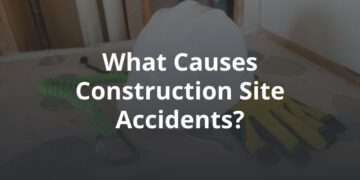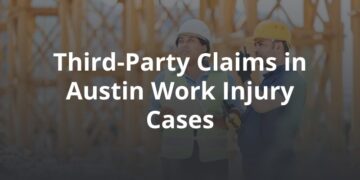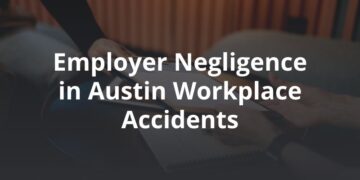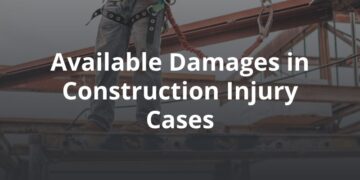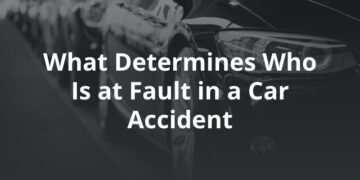What Is a Commercial Vehicle?
A commercial vehicle is generally any motor vehicle being used to transport goods or paying passengers on public roads, such as self-propelled or towed vehicles that:
- Have a gross vehicle weight rating or combination weight rating of 26,001 points or more, or
- Have seats to transport more than eight passengers for money, or
- Have seats to transport more than 15 passengers, not for money, or
- Have a bed or trailer to transport a large quantity of hazardous material.
From semi trucks to Amazon delivery vans, if a vehicle is owned by a company and used primarily for business purposes, it may be a commercial vehicle.
Because of the sheer size of most commercial vehicles, collisions between commercial vehicles and passenger cars — or cyclists or pedestrians — are often especially serious.
Unfortunately, commercial vehicle accidents are numerous, as well. The Federal Motor Carrier Safety Administration (FMCSA) reported that over 4,000 people were killed in crashes involving a large truck or bus in 2011, with over 112,000 injured in the same year.
No matter how large or small the vehicle, when a commercial vehicle is involved in a collision, it’s important to think about the special considerations that may make your case more complex.
What Should You Do If You’re in an Accident with a Commercial Vehicle?
Every accident is different, but there are some common steps you should take, starting at the scene of the collision.
- Call 911. If you are able, call 911 immediately. Even if you think the accident is not severe, the 911 dispatcher can walk you through your next steps, help you to feel calmer, and send the authorities to check on you. Having the police on the scene also means you will later have access to an official crash report (CR-3), which will provide important information about the events.
- Accept first responder medical evaluation. You may not immediately feel the effects of physical injury after an accident, because of either adrenaline or the nature of the injury. Even minor accidents can cause spinal injuries that have significant, long-lasting consequences.
- Record witness information. The sooner you can provide your lawyer with the names and contact information of witnesses to your accident, the sooner they can get information while witnesses’ memories are still fresh rather than waiting for Open Records Requests. It’s also possible that, if a criminal investigation into the collision is ongoing, police may not release the information, resulting in delays.
- Call your auto insurance company. Your insurance contract requires you to notify an agent if you are involved in a crash. Even if you are fairly certain you were not at fault, they will need to collect information from you, and not notifying them can result in a denial of your claim. You do not need to speak with the at-fault driver’s company, however. In fact, providing them with a statement could result in your unknowingly saying something that could be used against you.
- Seek follow-up medical care. Many people try to tough out their pain. However, whether you were taken to the hospital in an ambulance or walked away on your own, the care you get after your accident is crucial both for your health and, if you sue, for your case. Many spinal injuries present in unexpected ways, either by causing pain and symptoms in other parts of your body or by appearing over such a gradual period of time you almost don’t notice they’re connected.
- Call an attorney. Even if you have no intention of filing a lawsuit, it’s best to contact a personal injury lawyer who can explain your rights and options when it comes to proactive steps you can take for your health and your case.
If you were a passenger in another person’s car, a commercial bus, or other passenger vehicle that was involved in a collision, you should still call your auto insurance company. All auto policies in Texas include personal injury protection (PIP) coverage unless you have explicitly denied it in writing.
These funds can usually be accessed relatively quickly, and they will not be deducted from your settlement or verdict if you are not at fault.
What Factors Might Complicate Your Commercial Vehicle Settlement?
Though collisions often happen in a split second, evaluating the nuances of each crash in order to determine if you even have a legal claim — and if so, the best way to build a strong case — can be a complex process. The following questions can help.
- Is the driver a contractor? While rideshare collisions may not count as commercial vehicle accidents exactly, their complexity with regard to collisions involving non-employee drivers is similar to that of independent contractors driving commercial vehicles. Sometimes, drivers own their vehicles, which means they are responsible for securing their own insurance.
- Does it require DPS commercial motor vehicle inspection? According to the state of Texas Department of Public Safety (DPS), a “commercial motor vehicle” is a “self-propelled or towed vehicle, other than a farm vehicle with a gross weight, registered weight, or gross weight rating under 48,000 pounds, that is used on a public highway to transport passengers or cargo.” While the Transportation Code provides more specifics, including exceptions, with this definition comes a long list of required safety equipment and procedures. In the event that a commercial vehicle is found negligent or even fraudulent when it comes to safety, that will factor in when determining the driver or company’s liability.
- What caused the collision? This may be the first thing people think about when determining who is liable, but it’s not quite as simple as it may appear at first. If multiple drivers are involved in the collision, each driver’s actions before and during the crash need to be evaluated to determine which factors contributed — and by how much — to the crash. Your settlement or judgment will specifically express this in a numerical amount by assigning a percentage of responsibility to each party. That percentage determines how financially responsible that party is for the recovery. Whatever percentage of liability is assigned to you will be deducted from your overall recovery amount.
- Was the driver on duty? Many people whose jobs require them to drive company-owned vehicles daily have the same kind of access to these commercial vehicles as they would a personal vehicle, keeping them at home and in some cases even using them for personal business — whether they are supposed to or not. When you are hit by a driver in a commercial vehicle who is not driving for company business, the company may try to argue they are not responsible. However, there are cases when the company would still be found responsible. For example, if the company policy on using commercial vehicles for personal business is unclear or the business has negligently entrusted the vehicle to a driver whose record or background suggests they shouldn’t have, the company may share liability.
Personal vehicle collisions can be complex, but with commercial vehicles, there are far more regulations, laws, and liability considerations that must be taken into account when determining who is financially responsible.
What Are Common Causes of Commercial Vehicle Accidents?
FMCSA’s 2005 report to Congress indicated that human behavior is the largest contributing factor to large truck accidents in the United States, whether that’s from a driver’s poor judgment on the road or a company owner’s poor decision-making when it comes to maintaining their fleet.
Consider the following statistics from FMCSA’s congressional report:
- 29 percent of crashes were attributed to brake problems.
- 23 percent of crashes were attributed to too-fast driving for the conditions.
- 22 percent of crashes were attributed to drivers not knowing the roadway.
- 17 percent of crashes were attributed to over-the-counter drug use.
- 10 percent of crashes were attributed to the driver feeling pressure from the carrier.
While accidents will happen, all of these causes of large truck accidents are preventable. Because of this kind of data, the Texas DPS evaluates commercial motor carriers on their safety practices. The Safety Measurement System is used to identify carriers that pose greater risks to safety and may even rescind commercial licenses when needed in the following areas:
- Unsafe driving
- Fatigued driving
- Driver fitness
- Controlled substances and alcohol
- Vehicle maintenance
- Cargo related
If you have been in a commercial vehicle accident, your lawyer can request the carrier’s SMS data. This may give your lawyer an idea of what kinds of factors to start investigating beyond what is obvious in your case. A long history of negligent behavior on the part of a driver or carrier may even strengthen your case or increase your settlement amount.
When Should I Consider Hiring an Attorney for My Commercial Vehicle Accident?
While we suggest that you always speak with an accident lawyer as soon as possible after someone else’s careless or reckless behavior caused your collision, some scenarios stand out more than others when it comes to making the decision to hire an attorney:
- When you have been seriously injured. Serious injuries generally result in two distinct kinds of costs to you: economic and non-economic. You likely will have extensive medical bills, missed wages or perhaps even an inability to work in the near future, and emotional distress.
- When a lawyer can significantly add value to your case. A law firm that won’t settle for a quick payout — and one that knows the advantages of taking big trucking companies to a jury trial — might be able to secure recovery far above the cost of hiring them.
- When the driver is under- or uninsured. Commercial trucks are required to carry at least $300,000 of insurance for smaller freight vehicles and over $1 million for passenger vehicles. If the driver or carrier hasn’t met their obligation or your damages exceed the policy limits, your lawyer may be able to collect damages from other sources.
- When commercial liability is unclear. Sometimes businesses will try to deny that they are responsible for their employees’ personal actions. When that’s the case, the insurance company will likely try to deny the claim. In some cases, a legal doctrine called respondeat superior may apply. This holds that companies are in fact liable for employee actions that are in the course and scope of their employment.
Why Should You Contact an FVF Injury Lawyer as Soon as Possible?
FVF’s client-centered approach begins with ensuring that you have an advocate and a sense of the kinds of resources you need to access quality medical care, community support, and financial resources after an accident.
Generally speaking, the more complex the case — the more potential parties who are liable, the higher the amount of lost wages and medical bills, and other factors — the higher the potential amount of compensation. However, it also means the insurance companies or other responsible parties are going to fight that much harder to get you to accept a low settlement offer.
The more money that is on the line for the insurance provider to pay out or the trucking company to lose, the harder they will fight it. If you decide that you want to pursue a commercial vehicle accident settlement or jury verdict after your accident, we will tell you whether or not we believe our experience and approach will better position your case to receive maximum financial recovery. Being informed about commercial vehicle settlements is crucial.
That’s why FVF invites you to contact us for a pressure-free initial case consultation. We want you to be equipped with the knowledge you need to make your own decisions, regardless of pressure from insurance companies.
